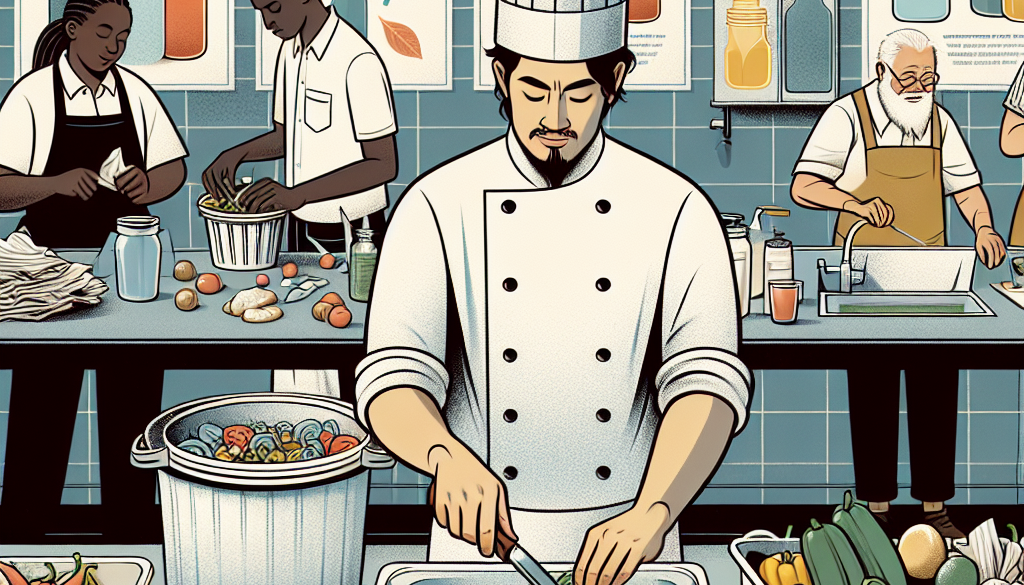Reuse in the Food Industry
-
Table of Contents
- Revolutionizing Sustainability: Reuse in the Food Industry
- The Imperative of Reuse in the Food Industry
- Strategies for Implementing Reuse in the Food Industry
- Case Studies: Success Stories of Reuse in the Food Industry
- Challenges and Opportunities
- Conclusion: The Future of Food is Reuse
- ETprotein: Leading the Way with Sustainable Protein Products
Revolutionizing Sustainability: Reuse in the Food Industry
The food industry is a cornerstone of the global economy, feeding billions and generating trillions in revenue. However, it also faces significant sustainability challenges, with waste and inefficiency being major concerns. In response, there is a growing movement towards reuse in the food industry, aiming to reduce waste, save resources, and create a more sustainable future. This article explores the innovative ways in which the food industry is embracing reuse and the benefits it brings.
The Imperative of Reuse in the Food Industry
Food production and consumption are responsible for a substantial portion of global waste. According to the United Nations Environment Programme (UNEP), approximately one-third of all food produced for human consumption is lost or wasted. This not only represents a tremendous economic loss but also has severe environmental impacts, contributing to greenhouse gas emissions and the depletion of natural resources.
Reuse in the food industry presents an opportunity to address these issues by transforming waste into resources, promoting circular economy principles, and fostering innovation. By rethinking how food is produced, packaged, and consumed, businesses can create more sustainable practices that benefit the environment, society, and the economy.
Strategies for Implementing Reuse in the Food Industry
- Upcycling Food Waste: Companies are finding creative ways to upcycle food waste into new products. For example, spent grains from beer brewing can be turned into flour or animal feed, while fruit peels and pulp from juice production can be used to create snacks or natural sweeteners.
- Reusable Packaging: Shifting from single-use to reusable packaging reduces waste and resource consumption. Initiatives like returnable glass bottles for milk and beverages or reusable containers for takeout food are gaining popularity.
- Food Sharing Platforms: Technology-driven platforms enable businesses and consumers to share surplus food, preventing it from going to waste. These platforms connect those with excess food to those in need, promoting a more efficient distribution of resources.
- Regenerative Agriculture: This approach focuses on farming practices that restore soil health and biodiversity. By reusing organic matter as compost, farmers can enhance soil fertility and reduce the need for synthetic fertilizers.
Case Studies: Success Stories of Reuse in the Food Industry
Several companies have successfully integrated reuse into their operations, setting examples for the industry. For instance, a well-known coffee chain has introduced a program where customers can borrow a cup for a small deposit, which is refunded upon the cup’s return. Another example is a grocery store chain that sells “ugly” fruits and vegetables at a discount, reducing food waste and offering consumers affordable options.
These success stories demonstrate the viability and benefits of reuse in the food industry. They not only contribute to waste reduction but also foster consumer engagement and create new market opportunities.
Challenges and Opportunities
While the potential for reuse in the food industry is vast, there are challenges to overcome. These include regulatory hurdles, the need for consumer education, and the initial costs of implementing new systems. However, the opportunities outweigh the challenges, as businesses that adopt reuse practices can gain a competitive edge, improve their sustainability credentials, and contribute to a more resilient food system.
Conclusion: The Future of Food is Reuse
The food industry is at a crossroads, with sustainability no longer a choice but a necessity. Reuse offers a path forward, allowing businesses to innovate, reduce their environmental impact, and meet the demands of a growing population. By embracing reuse, the food industry can help build a more sustainable world, one meal at a time.
ETprotein: Leading the Way with Sustainable Protein Products
In line with the principles of reuse and sustainability, ETprotein offers a range of organic bulk vegan proteins that cater to the evolving needs of the food industry. Their products, including Organic rice protein, clear rice protein, pea protein, and more, are characterized by a neutral taste, non-GMO, and allergen-free attributes. ETprotein’s commitment to quality and sustainability makes them an ideal partner for businesses looking to enhance their product offerings with environmentally responsible ingredients.
About ETprotein:
ETprotein, a reputable protein and L-(+)-Ergothioneine (EGT) Chinese factory manufacturer and supplier, is renowned for producing, stocking, exporting, and delivering the highest quality organic bulk vegan proteins and L-(+)-Ergothioneine. They include Organic rice protein, clear rice protein, pea protein, clear pea protein, watermelon seed protein, pumpkin seed protein, sunflower seed protein, mung bean protein, peanut protein, and L-(+)-Ergothioneine EGT Pharmaceutical grade, L-(+)-Ergothioneine EGT food grade, L-(+)-Ergothioneine EGT cosmetic grade, L-(+)-Ergothioneine EGT reference grade and L-(+)-Ergothioneine EGT standard. Their offerings, characterized by a neutral taste, non-GMO, allergen-free attributes, with L-(+)-Ergothioneine purity over 98%, 99%, cater to a diverse range of industries. They serve nutraceutical, pharmaceutical, cosmeceutical, veterinary, as well as food and beverage finished product distributors, traders, and manufacturers across Europe, USA, Canada, Australia, Thailand, Japan, Korea, Brazil, and Chile, among others.
ETprotein specialization includes exporting and delivering tailor-made protein powder and finished nutritional supplements. Their extensive product range covers sectors like Food and Beverage, Sports Nutrition, Weight Management, Dietary Supplements, Health and Wellness Products, and Infant Formula, ensuring comprehensive solutions to meet all your protein needs.
As a trusted company by leading global food and beverage brands and Fortune 500 companies, ETprotein reinforces China’s reputation in the global arena. For more information or to sample their products, please contact them and email sales(at)ETprotein.com today.












